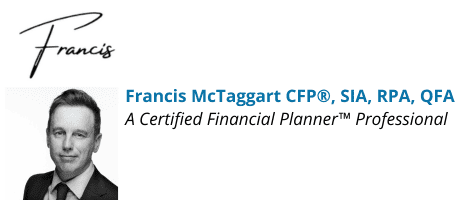Should I pay down my mortgage after redundancy?
Redundancy can hit like a bolt from the blue — even if you saw it coming. Whether voluntary or not, one of the first questions that crosses many people’s minds after receiving a lump sum is:
“Should I use it to pay down my mortgage?”
It’s a fair question. For many in Ireland, the mortgage is the single biggest monthly expense and carries emotional weight — security, stability, and the dream of owning your home outright.
But before making any big decisions, let’s look at the key factors to weigh up.
Understand Your Redundancy Package
Start by getting clarity on the net amount you’ll receive after tax. Remember:
-
Statutory redundancy is tax-free.
-
An additional ex-gratia lump sum may also qualify for tax reliefs, such as the Basic Exemption, Increased Exemption, or SCSB.
-
If you pay down your mortgage before reviewing these reliefs, you may miss out on tax efficiencies.
Always get financial advice before touching the money or accepting a redundancy package.
Build a Cash Buffer First
Redundancy = Income Uncertainty.
While it might feel smart to eliminate debt, liquidity is key. Paying down your mortgage is irreversible.
But having a cash buffer gives you options and good financial planning is about giving yourself options.
We typically recommend setting aside 6 to 12 months of essential living expenses before committing lump sums elsewhere.
This gives you breathing room to:
-
Search for a new role on your terms
-
Retrain or upskill
-
Explore a career or life pivot
Don’t underestimate the psychological comfort of cash.

Beware the Trap of Illiquidity
This is crucial: once you put money into your mortgage, you can’t get it back.
If you clear a lump sum today and find yourself needing funds in six months — for living costs, retraining, or a business opportunity — your bank is unlikely to hand it back. You might have to:
-
Reapply for credit under new terms
-
Tap into more expensive borrowing (credit cards, overdrafts)
-
Sell investments or assets under pressure
In short, you’re giving up flexibility and reducing your options — and that’s a risk not to be taken lightly, especially during uncertain times.

Psychological Benefit Matters Too
Sometimes, it’s not about the math.
For some people, reducing or eliminating the mortgage gives peace of mind that outweighs any investment return. If it helps you sleep better at night, that counts.
Just remember: Don’t leave yourself cash-poor in the process.
What’s Your Next Move?
Are you close to retirement? Planning to start a business? Considering relocating?
Each of these paths influences whether reducing debt is the right strategy.
A person in their mid-30s with a long career ahead might approach things very differently than someone in their late 40’s or 50s.
Final Thoughts
There’s no one-size-fits-all answer.
Paying down your mortgage may be the right call — but only after you’ve secured your short-term needs, reviewed your redundancy tax position, and considered what you want your future to look like.
We work with individuals across Ireland going through redundancy to help them make confident, informed financial decisions — including whether or not to pay down their mortgage.
Are you facing redundancy and asking yourself ‘should I pay down my mortgage?’
Don’t make rushed financial decisions that could impact your long-term security.
At Fortitude Financial Planning, we specialise in helping people navigate redundancy with clarity and confidence.
Whether it’s understanding your options, protecting your cash flow, or deciding what to do with your mortgage — we’re here to guide you.
Get in Touch
📞 Contact us today for a confidential consultation.
📧 info@fortitudefp.ie
💬 Schedule a no-obligation initial call with us to discuss your needs and how we can help.
📅 Click here to book your call now.
Visit our Insights – A hub of information covering saving, investing, financial planning, protection, and pension advice.


Our blog posts are intended for information purposes only and should not be interpreted as financial advice.
You should always engage the services of a fully qualified financial planner before entering any financial contract.
To discuss engaging the services of Fortitude Financial Planning please email us at info@fortitudefp.ie.
Fortitude Financial Planning Ltd will not be held responsible for any actions taken as a result of reading these blog posts.


 Production
Production